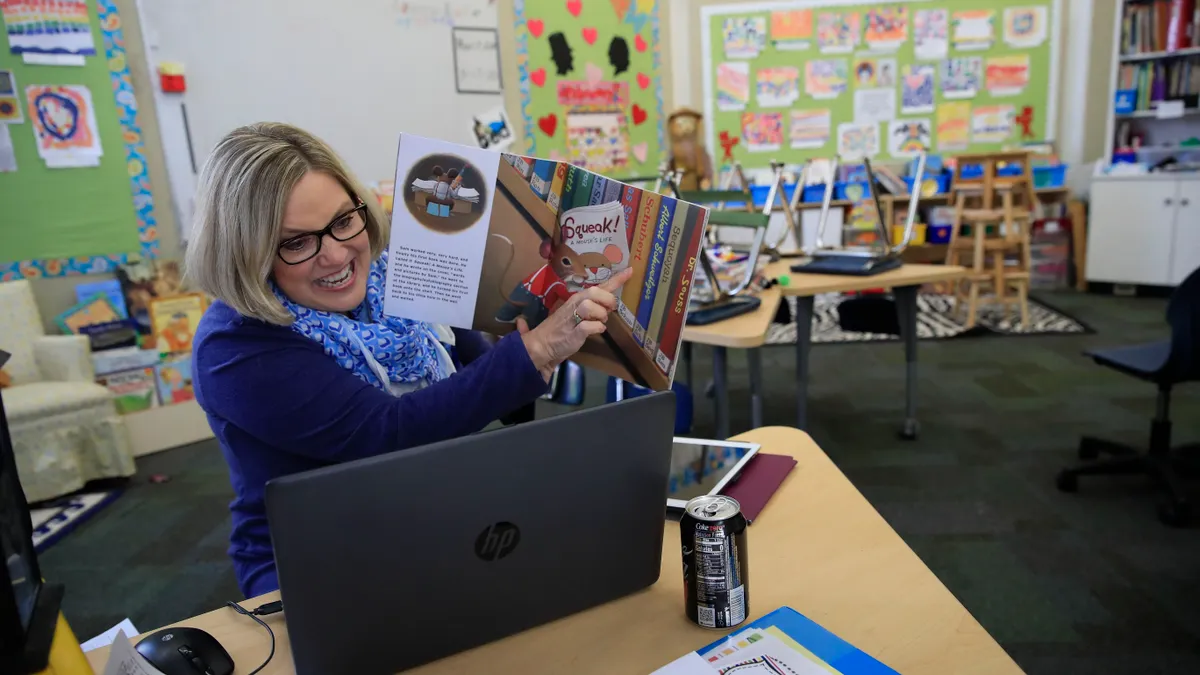The forced move to online learning in spring 2020 due to COVID-19 led educators at Avenues: The World School in São Paulo, Brazil, to convert from written report cards to video reports, three tech integrators at the school told a virtual session of the International Society for Technology in Education LIVE 22 conference.
The abundance of digitally recorded assignments and reflections on learning created by students was a “window into their minds,” said Bárbara Coelho, one of the session’s speakers. The Avenues in São Paulo is an international school serving students ages 2-18, according to its website. There are also Avenues campuses in New York City and Shenzhen, China.
That digital material caused educators to reexamine ways to show students’ progress and also to acknowledge efforts of students who had greater difficulties completing assignments because of the pandemic, Coelho said.
The teacher-created video report cards included the student speaking and reflecting on their learning process, teacher feedback, highlights of the students’ accomplishments, and future goals.
The speakers said planning for video report cards included:
- Determining the structure of the video report card, also known as a digital portfolio, as well as the ed tech tools and applications needed.
- Staff training, with synchronous and asynchronous professional development and resources, such as a template, provided.
- Video recording and editing. Office hours and a help desk were set up to assist teachers with technical difficulties.
- Sharing and video storage. Leaders had to plan out how the video report cards could be easily accessible to parents but also meet student data privacy requirements.
The video report cards, according to the speakers, led to increased family engagement and more opportunities to allow students to take ownership of their learning.















